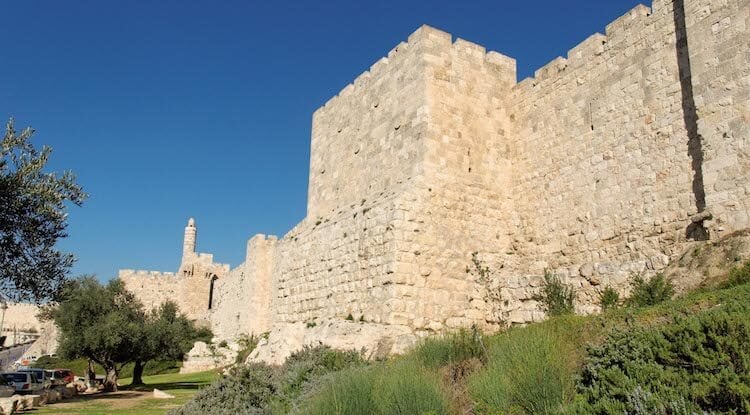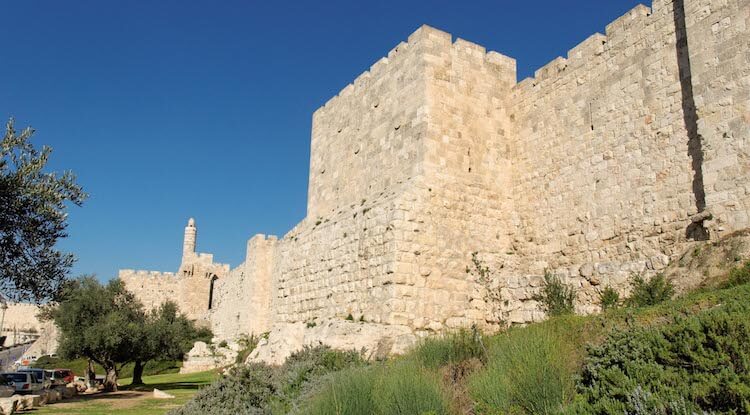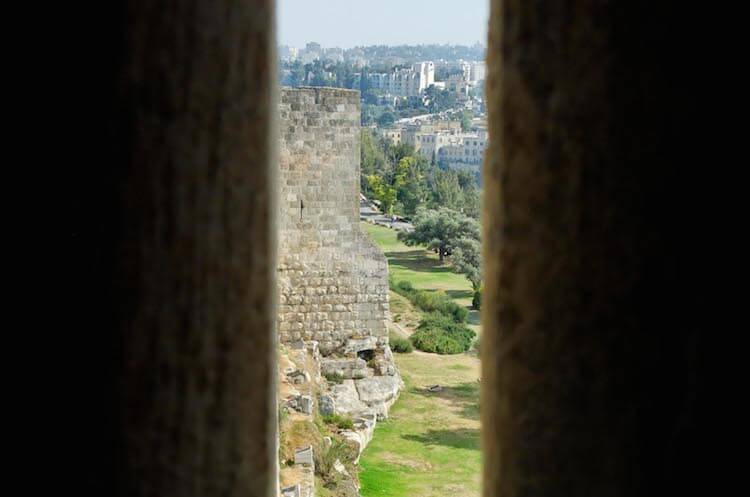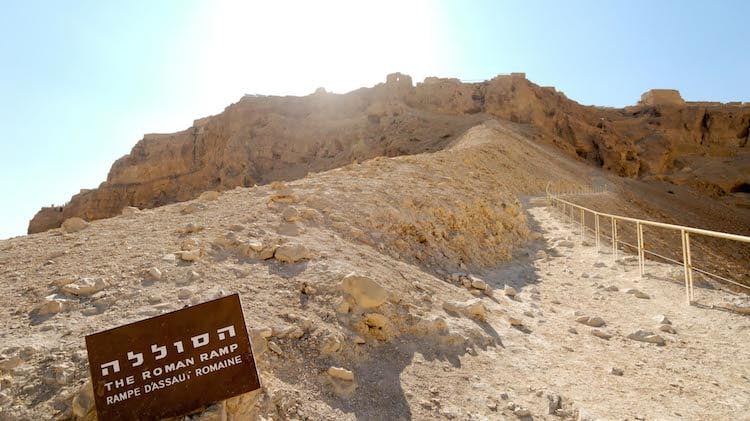3 min read
God Lays Siege to Your Life to Restore You, Not Destroy You
The biblical sieges illustrate the Lord's love for His people.
Admin
:
May 21, 2017 11:00:26 PM

In ancient Israel, a city wasn’t a city without a wall. The wall served as the primary means of protection from an enemy. Without a wall, you were a sitting duck.

(Photo: Jerusalem’s Old City Walls. Courtesy of the Pictorial Library of Bible Lands)
In times of war, an enemy would surround a city wall and lay siege to it. This method purposed to starve the inhabitants of food and water—forcing surrender. Often a siege took months or even years. But it was very effective. All it took was time.
The sieges of ancient Israel serve as a fitting metaphor for what God often does in our lives when we erect walls to keep Him out. But there’s a key difference.
God lays siege to your life not to destroy you, but to restore you.
Walls and Sieges and Such
Daniel’s prophecy to “restore and rebuild Jerusalem” referred to rebuilding its wall (Daniel 9:25). In fact, not until Nehemiah rebuilt the wall in 444 BC was Jerusalem considered rebuilt. Without a wall, a community was simply an “unwalled village” (Ezek. 38:11).
Erika Bleibtreu describes at least “Five Ways to Conquer a City” (see BAR 16:03, May/Jun 1990) as follows:
- Scaling the walls with ladders.
- Demolishing the stone walls or wooden gates with battering rams.
- Tunneling under the city wall.
- Cutting off the city’s water supply.
- Cutting off a city’s food and water supply by laying siege to it.
Usually, an enemy employed more than one method at a time.

(Photo: Lachish reliefs in the British Museum, photo by Cathy Stiles)
When a city’s fortifications proved too formidable, the enemy would surround the city and lay siege to it. Laying siege to a walled city was standard operation for an invading army. If terms of peace went ignored, the siege would bring terrible results.
- Many cities and sites in Israel fell after a siege—like Jerusalem, Samaria, and Masada.
- The nation Judah suffered siege from both Sennacherib and Nebuchadnezzar (2 Kings 18-19; 24–25), just to name two incidents.
- The famous Lachish reliefs recount the vicious attacks the Assyrians mounted against the walled city of Lachish. During this time, Hezekiah dug a water channel and enlarged the wall of Jerusalem to accommodate the refugees from the northern kingdom.
- Jesus predicted that Jerusalem’s enemies would lay siege to it and destroy it (Luke 19:43-44). The event occurred exactly 37 years later in AD 70 (see Josephus, War of the Jews, volumes V-VII).

(Photo: Jerusalem’s Old City wall seen through arrow slit. Courtesy of the Pictorial Library of Bible Lands)
God’s Purpose in Allowing a Siege
God warned His people that for disobedience to Him, He would bring a siege from an invading army upon their walled cities (Deut. 28:49–57). Ezekiel even built a miniature city of Jerusalem and laid siege to it to symbolize God’s intentions (Ezekiel 4).
When a person endured a siege, you were trapped, and it was just a matter of time before you died by the sword or by starvation. This time of waiting on the inevitable would have caused some serious introspective thinking about your spiritual life.
The goal? To motivate repentance. God used the threat of siege to urge faithfulness.
Isaiah looked toward a day when the Messiah would reign over Jerusalem, and the walls would represent His security:
Violence will not be heard again in your land, nor devastation or destruction within your borders; but you will call your walls salvation, and your gates praise. —Isaiah 60:18
When God Lays Siege to Your Life
God’s sieges are different today, but they force the same introspection. When the Lord lays siege to our lives, He surrounds us and removes what it necessary to cause some serious thinking.
Here are some examples:
- Health
- Productivity for His kingdom
- Peace of mind
- Finances
- Possessions
- Loved ones
Of course, losing any of these doesn’t necessarily mean God is laying siege to your life. But when He is, He often employs these effective means.
- The removal of basic needs or essentials causes you to think deeper than you would otherwise.
- God’s sieges reduce life to the basics and cause you to realize your own mortality, revealing you who you really are apart from Him.

(Photo: Masada Roman siege ramp. Courtesy of the Pictorial Library of Bible Lands)
Are you suffering the battering ram of God? Are you lacking in some area because God is laying siege to your life? Is He calling you back to a faithful walk with Him?
If so, open the gate and let Him in (Rev. 3:20).
If not, do all you can to fortify the wall with God inside—not outside.
Tell me what you think: Has God laid siege to your life before? What happened? To leave a comment, just click here.
Click here to leave a comment.
-1.png?width=5230&height=1198&name=unnamed%20(4)-1.png)

.jpg?width=350&name=Wayne-books-350wide%20(1).jpg)




